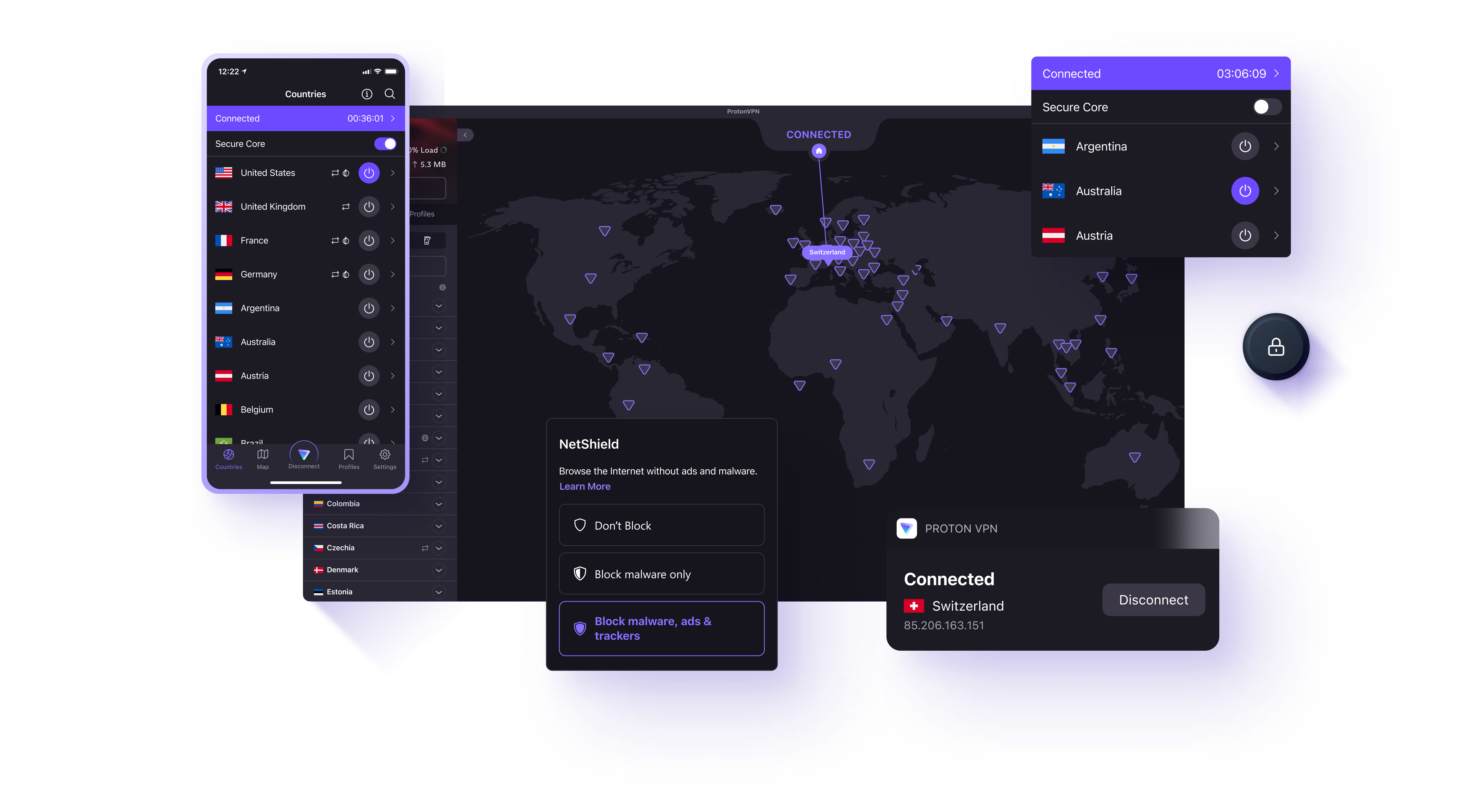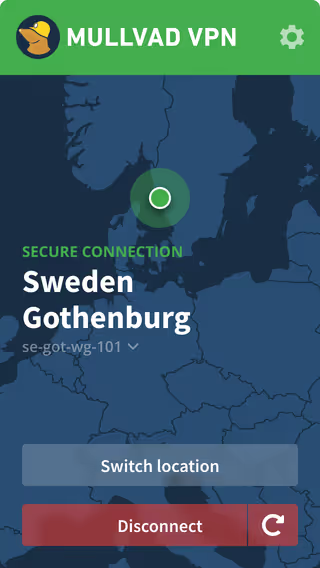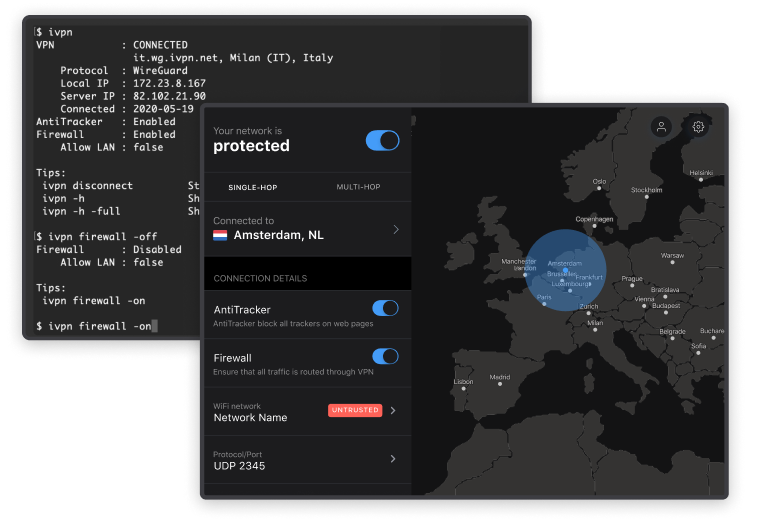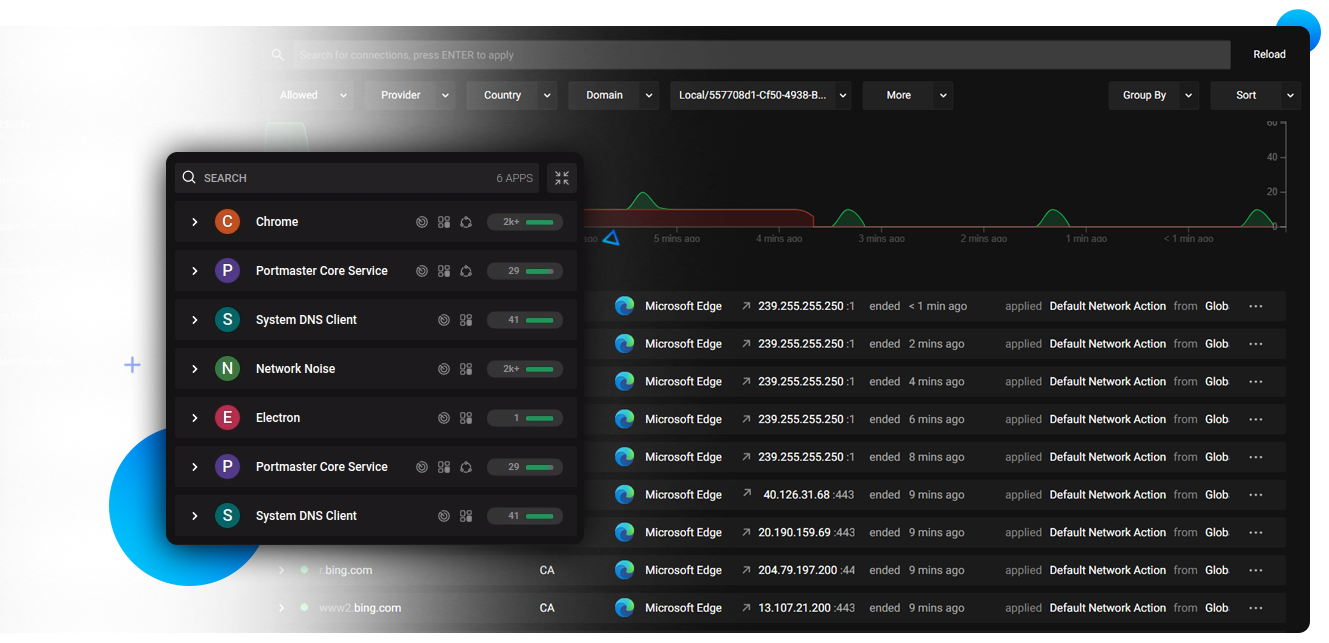The Best VPN in 2024
Disclosure: we have an affiliate link with Proton VPN that gives us a small financial payout if you sign up for a paid plan using it. You can see our policy regarding affiliate links here.
What is a VPN?
If you found this page via a web search, there’s a possibility you’re not entirely sure what a VPN is or does. You may know that they help you bypass georestricted content – like sports or Netflix – or that they can protect you from cybercriminals (more on that in a moment), but you may not know how. The short, non-technical answer is that a VPN creates a secure, encrypted connection between your device (computer, phone, TV, router, etc) and the VPN Provider’s server. This has the effect of making it look like your device is wherever the server is located (usually another state/country, hence bypassing georestrictions) and as well as protecting your traffic from any local snoops (such as malicious public routers or nosy Internet Service Providers – or ISPs).
Do You Need a VPN?
If you’re here because you think a VPN will make you hacker-proof or anonymous, the answer is no. A VPN – contrary to much of the false marketing out there – will not do either of those things. VPNs can help mitigate these risks slightly. For example, the VPN providers I recommend do block some trackers, and changing your IP address will remove one way you can be identified and tracked online. However, modern internet tracking is far more complex than just blocking cookies and changing your IP address, so while a VPN can help, it’s not 100% effective. There’s a lot more that goes into online anonymity.
Likewise, for cybersecurity, a VPN can again help, but only so much. The aforementioned blocking usually also includes known malicious links. However, this doesn’t protect against any threats the provider isn’t aware of (and new ones are popping up all the time), and localized threats like a malicious router are – as far as I’m aware of – incredibly rare.
That said, if you’re here because you want to bypass georestricted content, because you want to bypass censorship, because you don’t want your ISP selling your browsing habits to advertisers, or because you want a VPN as part of a larger overall privacy strategy, then yes. A VPN could be right for you.
If you’re still unsure if a VPN will deliver what you want from it, I really encourage you to check out IVPN’s Do I need a VPN? website.
Proton
 Image courtesy of ProtonVPN
Image courtesy of ProtonVPN
Normally when I list products and tools, I try to do them in alphabetical order, but given the audience I suspect this post will attract, I’ll just go ahead and say it: I think Proton is the best choice for most people. For starters, Proton is the only VPN Provider I recommend who promises they’ll work with streaming services. My wife and I use Proton on our router at our home and have had zero issues with Netflix, Disney+, Hulu, or pretty much any other service we’ve tried or had. That’s probably the biggest selling point for most readers and what they’ll like want out of a VPN. Additional benefits, however, include things like a very modern and appealing app, excellent customer support, and apps for every operating system (including Chromebooks and Android TVs). They claim to have servers in over 110 countries with unlimited bandwidth and allow up to 10 devices at once. For the privacy/security/censorship minded, Proton includes a number of features to help you bypass censorship (such as Smart Protocol or Stealth) and include cutting edge features like Wireguard, Perfect Forward Secrecy, regular audits, open-source clients, and more. As an added bonus, your Proton account is good for more than just a VPN. It comes with encrypted email, encrypted calendar, encrypted cloud storage, a password manager, and more, making it a powerful, privacy-focused alternative to privacy-invasive ecosystems like Apple or Google.
Of course, no service is perfect. Proton’s biggest drawback tends to be “feature parity” – apps on one operating system may not have the same features as apps on another. Loading a configuration onto certain devices – such as routers – also requires you to pick a server and commit to it rather than easily reconnecting to “fastest available,” which means it may take some trial and error to find a server that isn’t always slow when you’re usually active.
Overall, I think Proton is the best choice for most users. The company has a long track record and a strong dedication to the privacy cause, comes with a complete suite of tools (which are optional for those who don’t want to use them), offers a wide range of servers and features, and has very user-friendly and modern-looking apps. They even offer a free tier if you want to try it out and see how you like it, though be warned that the free servers are often quite slow. It’ll give you a great feel for the apps, but not really a feel for the speeds or premium features. Luckily Proton offers a 30-day money-back guarantee.
Mullvad
 Image courtesy of Mullvad
Image courtesy of Mullvad
For those who aren’t interested in bypassing georestricted content and who may not want to pay for a suite of tools they don’t plan to use, Mullvad would be my next recommendation. Mullvad’s two strongest selling points are price and an unwavering commitment to user privacy. Mullvad costs $5/month. Period. There are no tiers. Five dollars a month gets you all the features including nearly 700 servers in 46 countries. Their newest feature that sets them apart is “DAITA,” which is where they filter in random bits of traffic alongside your internet usage to help make advanced tracking even harder, helping to protect user privacy even more. Mullvad has further demonstrated their commitment to user privacy by doing things like accepting payments in Cash and Monero (among others), refusing money-back guarantees on cryptocurrency payments (because that would require them to record user data to honor the guarantee), and removing recurring subscriptions (for the same reason they don't offer money-back guarantees for cryptocurrency).
As readers may have noticed by that last sentence though, Mullvad does have one pretty big drawback: no recurring payments. This means it’ll be up to you to keep track of when your renewal is due and top up your account accordingly (though you can easily open the app and just see how much time you have left). The most you can pay for in advance is one year. Readers may also feel a bit limited by Mullvad as it doesn’t offer any of the fancy bells and whistles of other mainstream providers, but for those who want a VPN that will offer maximum privacy, Mullvad is hard to beat.
IVPN
 Image courtesy of IVPN
Image courtesy of IVPN
IVPN is another popular recommendation in the privacy community. IVPN’s biggest contributions to the user – in my opinion – are strong security and unique features. IVPN could act as a great midway point between the overwhelmingly feature-rich Proton and the more straightforward Mullvad. As an example of a unique feature, IVPN has a “trusted Wi-Fi network” feature that will automatically connect or disconnect the VPN based on what WiFi networks are nearby. Say for example that your home WiFi has a VPN on the router. In that case, there’s no need to be using a VPN twice. You can set your IVPN app to say “when I’m connected to this network, turn off the VPN, but when I disconnect turn it on.” There’s also a feature to pause the VPN for a predetermined period of time – great for if you need to disable it for a temporary situation but don’t want to forget to re-enable it afterward. Finally, IVPN offers a “hardcore mode” which blocks all connections from Facebook and Google (be aware though that this has been known to break other services that may rely on Big Tech servers for their infrastructure). I’ve also covered stories in the past about how IVPN was not victim to some of the VPN vulnerabilities discovered by researchers that affect nearly all other VPNs, often including Mullvad and Proton (I have tried many times over the years when making this claim to cite my sources but at this point it’s been so long I can’t find the articles). That’s not to say they’re never impacted, but to me it does demonstrate that they place a higher priority on security than most and it pays off. For readers who place a larger priority on security – or may feel that Proton or Mullvad are a bit lacking – IVPN is worth consideration.
Safing Privacy Network
 Image courtesy of Safing
Image courtesy of Safing
VPNs were never made for privacy. They’re a security tool, designed to allow remote employees to securely connect to the company’s network to do work when not on site. It's only later that the privacy community began to co-opt them for other purposes, but there's still a lot of room for improvement. The Safing Privacy Network (SPN) was designed to fill that space. SPN is a premium offering built on top of Portmaster, which is the company’s free “reverse-firewall” that blocks privacy-invasive telemetry originating from your device. SPN aims to improve upon VPN privacy by automatically sending each connection from your device to a different “identity” to make it harder for services to correlate all your traffic. SPN also uses multi-hop routing, similar to Tor (or the multi-hop servers that the above-listed VPNs also offer on some tiers), which is a notoriously good way to make tracking more difficult and ensure privacy and security of the data in transit. They also claim to try to exit your traffic as close to the destination servers as possible for improved internet speeds. I have used SPN myself for several years and found it to be a very user-friendly experience, though it does still occasional suffer from DNS outages that can be annoying until they pass (or until you disconnect and reconnect).
The largest drawback of SPN by far is the device limitations. At this time it is only available for Windows and Linux. They hope to bring it to other devices in the future, but for now there’s no word on when that will be. Still, for those using those operating systems (Windows users especially), SPN is a great software worth considering to protect your internet traffic with some innovative new methods.
“Wait, But What About…?”
If you stumbled onto this page because you did a Google search for “best VPN 2024,” you may notice this list is radically different than the others. Here you’ll see no mention of Nord, Surfshark, IPVanish, or some of the other common names. Technically speaking, there’s nothing inherently wrong with these providers (in most cases). Their VPNs will do what all VPNs do: create a secure connection and reroute your traffic, bypassing georestrictions and some censorship. That said, these companies engage in highly unethical and misleading marketing. These companies are why so many people believe ridiculous claims about VPNs, like how they'll make you “anonymous” and “hackerproof.” They throw around meaningless buzzwords like “military grade encryption” and lull users into a false sense of security, taking advantage of people's lack of expertise on the topic to make a quick buck. These providers and the websites who routinely tout them as the best are often owned by the same companies, and the providers are popular among content creators and reviewers because of their affiliate programs, which offer by a wide margin the most lucrative payout sharing structures I’ve ever seen. As I said, these frequently-mentioned providers will technically deliver what they promise (at least in so much as what any other VPN provider will), however I find their outright lies to be unethical and concerning. If they’re willing to blatantly lie so hard to their users to the point of misrepresenting the product and deceiving users, what else are they lying about?
Some additional resources on this topic: “The DARK Side of VPNs” by Naomi Brockwell, Techlore’s VPN Toolkit, Windscribe’s interactive chart of providers and their parent companies, and These VPN “Review” Websites are Actually Owned by VPNs by Restore Privacy. (Many, many articles and resources are just a web search away.)
Conclusion
A good VPN serves many purposes. While far from being the silver-bullet panacea that many unethical providers claim them to be, they still serve a valuable role in helping protect you online, with additional “cherry on top” perks like unblocking content or evading censorship. It’s important, however, to pick the right one. Because of their role, VPNs have to be able to see all your online traffic, and that means you’re trusting them with a lot of potentially sensitive data from where you bank and get your news to what you watch or play. Make sure to choose wisely and pick someone who respects you, your data, and provides what’s actually best for you and not their bottom line.
Tech changes fast, so be sure to check TheNewOil.org for the latest recommendations on tools, services, settings, and more. You can find our other content across the web here or support our work in a variety of ways here. You can also leave a comment on this post here: Discuss...